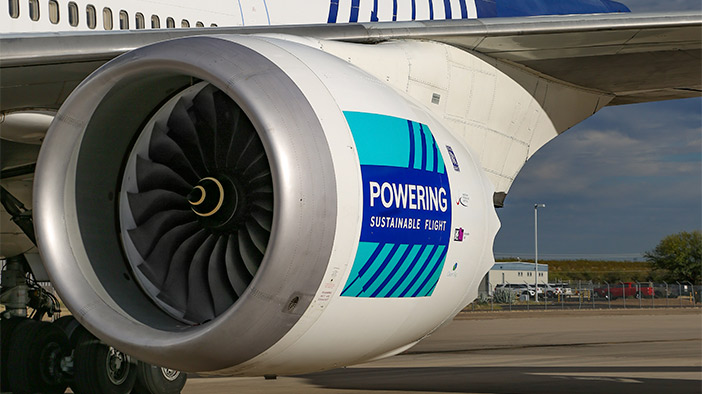
ALECSys flight testing on our Boeing 747 Flying Test Bed
We have already proven that all our Trent and Business Aviation commercial aero engine types are compatible with 100% SAF.
We have pledged to achieve net zero carbon in our operations by 2030 and play a crucial role in enabling the sectors in which we operate reach net zero by 2050.
Our new products will be compatible with net zero operation by 2030 and all our products will be compatible with net zero by 2050, in line with our UN Race to Zero commitment.
Read more about it here